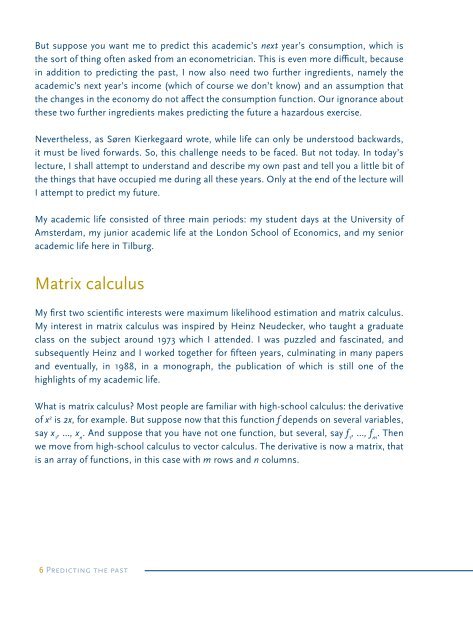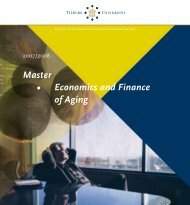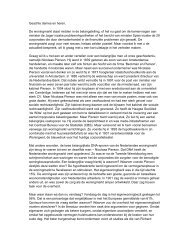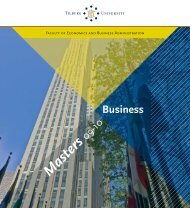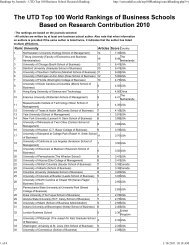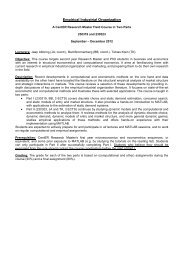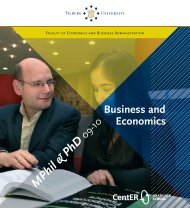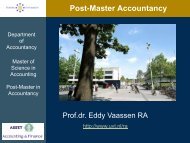Predicting the past - Tilburg University, The Netherlands
Predicting the past - Tilburg University, The Netherlands
Predicting the past - Tilburg University, The Netherlands
You also want an ePaper? Increase the reach of your titles
YUMPU automatically turns print PDFs into web optimized ePapers that Google loves.
But suppose you want me to predict this academic’s next year’s consumption, which is<br />
<strong>the</strong> sort of thing often asked from an econometrician. This is even more difficult, because<br />
in addition to predicting <strong>the</strong> <strong>past</strong>, I now also need two fur<strong>the</strong>r ingredients, namely <strong>the</strong><br />
academic’s next year’s income (which of course we don’t know) and an assumption that<br />
<strong>the</strong> changes in <strong>the</strong> economy do not affect <strong>the</strong> consumption function. Our ignorance about<br />
<strong>the</strong>se two fur<strong>the</strong>r ingredients makes predicting <strong>the</strong> future a hazardous exercise.<br />
Never<strong>the</strong>less, as Søren Kierkegaard wrote, while life can only be understood backwards,<br />
it must be lived forwards. So, this challenge needs to be faced. But not today. In today’s<br />
lecture, I shall attempt to understand and describe my own <strong>past</strong> and tell you a little bit of<br />
<strong>the</strong> things that have occupied me during all <strong>the</strong>se years. Only at <strong>the</strong> end of <strong>the</strong> lecture will<br />
I attempt to predict my future.<br />
My academic life consisted of three main periods: my student days at <strong>the</strong> <strong>University</strong> of<br />
Amsterdam, my junior academic life at <strong>the</strong> London School of Economics, and my senior<br />
academic life here in <strong>Tilburg</strong>.<br />
Matrix calculus<br />
My first two scientific interests were maximum likelihood estimation and matrix calculus.<br />
My interest in matrix calculus was inspired by Heinz Neudecker, who taught a graduate<br />
class on <strong>the</strong> subject around 1973 which I attended. I was puzzled and fascinated, and<br />
subsequently Heinz and I worked toge<strong>the</strong>r for fifteen years, culminating in many papers<br />
and eventually, in 1988, in a monograph, <strong>the</strong> publication of which is still one of <strong>the</strong><br />
highlights of my academic life.<br />
What is matrix calculus? Most people are familiar with high-school calculus: <strong>the</strong> derivative<br />
of x 2 is 2x, for example. But suppose now that this function f depends on several variables,<br />
say x 1<br />
, …, x n<br />
. And suppose that you have not one function, but several, say f 1<br />
, …, f m<br />
. <strong>The</strong>n<br />
we move from high-school calculus to vector calculus. <strong>The</strong> derivative is now a matrix, that<br />
is an array of functions, in this case with m rows and n columns.<br />
6 <strong>Predicting</strong> <strong>the</strong> <strong>past</strong>


